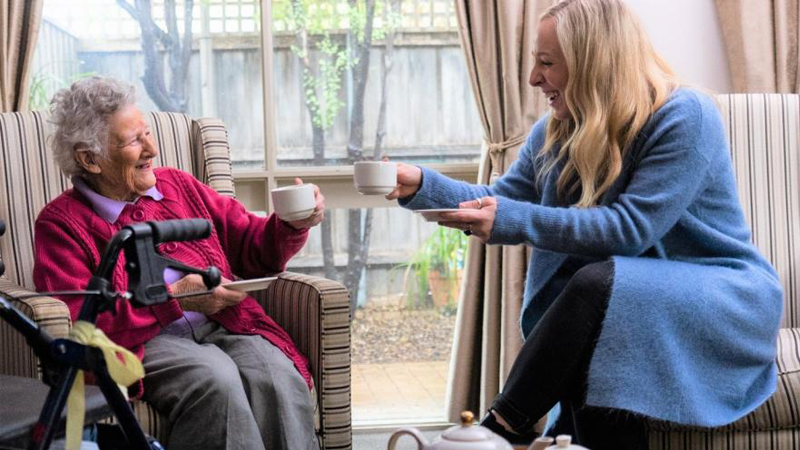The sector of aged care is grappling with “substantial challenges” in attracting and keeping volunteers, as revealed by a government study.

The Department of Health and Aged Care carried out the Volunteers in Aged Care survey from April to May this year, gathering insights from nearly 1,600 anonymous participants, which included:
- 1,003 volunteers
- 339 individuals managing or coordinating volunteers
- 225 providers of aged care who involved volunteers.
Despite the survey recognizing volunteers as “crucial to aged care and the provision of person-centred and quality care,” the department states that there is a “dire need” for assistance to tackle the dwindling numbers of volunteers.
The 2020 Aged Care Workforce Census indicates that the count of volunteers offering support in residential aged care facilities every two weeks was 11,980 – a figure nearly half of what it was in 2016.
The survey discloses several primary obstacles to volunteering in aged care, such as:
- commitments to family
- considerations for travel
- expenses incurred personally
- the process of onboarding
- procedures and health concerns related to Covid
- absence of flexibility
- insufficient support from staff.
Resources like fact sheets, handbooks, and training were sought as forms of support. The survey discovered that 38 per cent of volunteers had not received any training in the preceding 12 months.
When participants were questioned regarding the obstacles to volunteer training, their responses included:
- Lack of time and interest
- Computer literacy
- Training was too hard
- Limited access to a computer
- Time consuming
Volunteers also indicated a desire for consistent feedback and guidance, along with greater respect from salaried staff.
In fact, the survey reveals that while volunteers and those managing them view their work as having a significant impact and being meaningful, they feel this viewpoint is not always reciprocated by the organisation and its leaders.
While a large proportion of the volunteers surveyed – 75 per cent – expressed feeling appreciated by the service they volunteered for, some felt they were not valued enough and lacked support.
The survey indicates that volunteers bring numerous advantages to aged care homes, including cost reductions. However, it was found that 37 per cent of aged care providers do not have a volunteer manager or coordinator in their employ.
A significant number of aged care volunteers are brought on board through personal referrals, direct approaches, or self-referrals. It’s also common for volunteers to have a personal connection to the aged care system, such as a friend or family member.
Regarding recruitment, the survey identified a demand for volunteers “from diverse backgrounds, cultures, and life experiences.”
Consequently, the department is seeking additional feedback, particularly from diverse groups and individuals residing in rural and remote areas of Australia.
The department states that this feedback “will guide the continuous development and enhancement of volunteering policies, practices and procedures” and assist in formulating strategies “to better support, recruit and train aged care volunteers and volunteer managers who are a vital part of the sector.”
